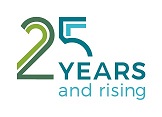Case study

Changing lives: Reducing amputations in people with diabetes
24 Mar 2017
 Diabetes-related foot ulceration is a major cause of preventable morbidity. It is estimated that over £60m is spent on foot ulcers and amputations in Scotland every year. Up to 80% of these amputations could be preventable.
Diabetes-related foot ulceration is a major cause of preventable morbidity. It is estimated that over £60m is spent on foot ulcers and amputations in Scotland every year. Up to 80% of these amputations could be preventable.
NHS Highland covers the largest and most sparsely populated part of the UK, comprising 41% of Scotland’s landmass. Patients in rural settings often face unique challenges in accessing services due to their distance from health resources and transport limitations. This can be compounded by connectivity issues across the region. Widening access to multidisciplinary teams through innovative solutions which reduce travel could contribute to improved care and reductions in the amputation rates.
Working with clinical colleagues in NHS Highland and local industry partner Tactical Wireless, the university’s rural health and wellbeing team has helped to establish a collaboration which is developing a new care pathway for people living with diabetes complicated by foot ulceration.
Together with community and specialist podiatrists and Tactical Wireless, the team has been designing and evaluating trials of the RAPID (reducing amputations in diabetes) pathway. The research, which is being funded by Highlands and Islands Enterprise, includes a triage process, image capture and locally-based video consultation between the patient, community staff and central services.
The group has established that the Omni-Hub™, a portable unit which can optimise Wi-Fi, cellular and satellite networks, is capable of transmitting images and live video links to the multidisciplinary team across a range of rural settings in the NHS Highland area.
This programme of evaluation is important to enhance the new process so it can become an embedded pathway which will inform policy change and create a paradigm shift in the management of health issues in the community. The approach is aligned with the Scottish Government's 2020 Vision of people being cared for in their home settings and could be used as an exemplar for the management of other health conditions. This would contribute to resilience in rural communities and help to transfer knowledge to health providers across Scotland and beyond.